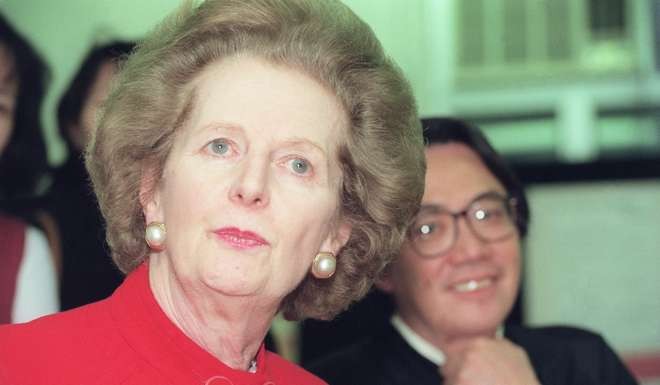
With limited policy options, character counts in race for Hong Kong’s top job
Fiscal and political constraints mean candidates have narrow scope to compete on policy, so their personas may make all the difference

Margaret Thatcher would probably never have won Britain’s governing seat had she competed under a presidential system of elections. She was widely perceived as being too aloof and overly combative – qualities that would have made her unelectable on most occasions.
Under her leadership, the Conservative Party won three consecutive general elections in 1979, 1983 and 1987. In each of these elections the party won a comfortable majority, representing 45, 44 and 43 per cent of the popular votes cast.
However, Thatcher had consistently polled lower than her party. Between 1979 and 1990, when she stepped down, an average of 54 per cent of the public were dissatisfied with the way she was doing her job. The overall satisfaction rate was a below-average 40 per cent. The poll results were clearly not consistent with her status in British political history, and not commensurate with the legacy she left behind.

While in office, she frequently provoked strong emotions from the people, whether they were in support or against her. Even at the height of her popularity, just after Britain had recaptured the Falkland Islands, no less than 54 per cent of the public thought she “talked down to people”, and nearly half regarded her as “out of touch”. At the same time, however, some 62 per cent of the public rated her as a “capable leader” and “good in a crisis”.
Despite her achievements in turning the economy around and bringing the country back up to a higher international status, she remained fairly unpopular throughout her premiership.
Presidential elections are typically more personal. A candidate’s likeability counts more than competence. Perceived character, not track record, defines a candidate’s chance of winning. Compared to the parliamentary system of democracy where voters pick the winning political party rather than a candidate, a presidential system of election runs a higher risk of churning out leaders who may be able to win an election but fail to govern effectively.
In our unique system of electing the chief executive, thus far it seems a candidate’s popularity has not counted for much with only an extremely small percentage of people eligible to vote. Of the four known candidates so far, at least three of them – Regina Ip Lau Suk-yee, Carrie Lam Cheng Yuet-ngor and John Tsang Chun-wah – must be assumed to be highly competent given their long track records in government. Their former status as principal officials appointed by the central government must also put them in the “trusted” category, having served the nation and Hong Kong loyally.
There is a clear limit on how far these candidates can compete on their respective policy agendas, given the fiscal and political constraints set under the Basic Law. In effect, they only have a very narrow range of policy options to choose from.
What remains is their individual personas, which differ considerably. In this respect, the race for the city’s top job promises to be interesting.
Lam Woon-kwong is convenor of the Executive Council